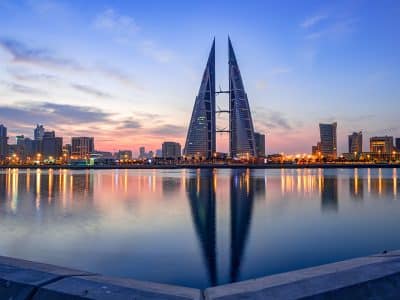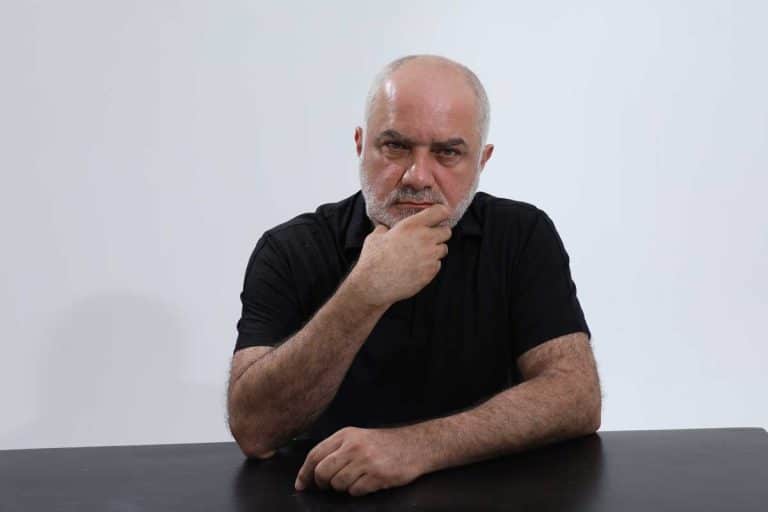Life is a journey that takes us through many twists and turns, and often, we find ourselves in places we never thought we would be. This is the story of one man’s journey from Syria, to the Soviet Union, then to Ukraine, and finally to a place of self-discovery that led to the discovery of a potential solution for humanity’s problems.
Channelling years of depression, frustration and curbed creativity, Hares Youssef set out in search of change, change not only for himself but for humanity.
A Syrian-born Ukranian who was sent for military service as part of a previously existing treaty obligation between the Soviet Union and the Syrian Government, throughout his life Youssef had been against the idea of armies, of weapons and soldiers, “from childhood, I feel like I don’t feel safe,” he said, eventually leaving military school to study economics.
His journey through hardships and struggles growing up, to establishing successful business ventures and ultimately becoming a philanthropist was what led him to think deeply about the human condition, the world and the values of humanity.
At the age of 45 Youssef gave up most of his successful businesses and signed a contract with himself to never go back into business. He donated all his assets and closed all of his companies but one – Hares Engineering, and eventually shifted focus towards his own project, his “life project” as he calls it – Gaiia.
Explaining the complex process as simply as possible, Youssef began to dive into the concept he discovered, the process of what came to become Gaiia.
Youssef identified that isolating himself from the problem was the only way to find a solution to it. “My Life project, I call it Gaiia. I wanted to start to write. I wanted to observe the world around me to see where the mistakes are, to see what was happening with [humanity] us and I got this position to look at the world from a reference point outside of it. So I began looking at things from afar, from a point very far from it,” he started to explain.
“To see the movement of the planet, the movement of humans inside the planet, to see what is going on with global issues, what is going on with processes and even evolution, to understand what progress was made and how we can distinguish what is bad and what is good,” is how he began his dive into 15-years of discoveries, learnings and observations.
Through his research, observation and attempt to understand, Youssef concluded that there is a missing factor within human consciousness, which he calls – the universal measurement of value.

He saw the poverty and hunger in the world, the destruction of the environment, and how the “economic system has become the real threat to the ecosystem,” and asked himself how he could find a reference point for all of humanity to solve humanitarian issues.
For over 15 years, he worked on this idea, turning it over in his mind, refining it, and seeking inspiration from the world around him. He realized that evolution could give us a sign, an idea, a proof of concept that could guide our actions. He saw a holistic picture of the world emerging, based on the centre, the universal measurement of value.
Looking at the world from space, from the darkness, he pictured the Earth spinning on its axis for billions of years, dividing the world between light and darkness. He realised that humanity was only the beginning of building a new history on the planet.
“The earth is divided between light and darkness, for 13 billion years the planet has been turning around itself. When we change our relationship approach to our planet, we change our behaviour and our relationship with each other,” he explains.
He rejected the word globalisation. “I don’t like the world global, it’s not a globe, it’s a planet,” he emphasised with dismay. He talked about changing our relationship with the planet and changing our behaviour towards each other.
“This planet is a homeland. It is not only a homeland with the source of life, we breathe this planet, we call it Gaiia,” derived from the word ‘Gaia’ which according to ancient Greek mythology was the goddess of Earth and mother of all life.
He firmly believed that the universal value that could guide us was the appreciation of life and beauty of the world, and the recognition of our place in it. He believed he saw a new beginning for humanity.
In a world that is governed by national interests, conflicts arise as there is no common humanitarian interest. The United Nations established almost 70 years ago, has done “nothing to create one common universal humanitarian value.”
He truly believes that Gaiia is “the only path, the only way, the only bridge” to humanity. Understanding the planet and building a relationship with planet Earth, he believes, is the only way to create a new humanitarian identity.

According to Youssef, we are in the new steps of building a new history, humans are merely a tool to create tools. The ecosystem and tools are essential in creating balance in systems or homeostasis. “Everything in progress is evolution but not everything in evolution is progress,” he said, reasoning it to be the difference between wisdom and science.
The concept of Gaiia constitutes the circulation of the economy, financial system, and ecosystem that must be in natural exchange of value, respecting the cost of things taken from nature.
The current financial systems are placing “a stress on the world, stressing the economy” affecting humanity. The measurement of value is crucial, as soon as the measurement of value is wrong, the value is wrong.
Therefore, creating the most important thing for value is measuring it right, Youssef explained, “Currency is a tool to manage the economy, not an exchange of value between humans,” The highest value for humans is and should be the planet, as humans we direct value towards other things, leading the current ways of valuation which is what he aims to solve by using his self-discovered universal measurement of value.
This philanthropist’s journey of self-discovery has led him to a profound understanding of the human condition, the world, and the values that guide his actions. He explained that we can find a universal value and work towards a better future for humanity and the planet.
Youssef has since then published a book titled GAIIA – a philosophical and futurological novel. He has also established the GAIIA Foundation, a company behind two new developments.
GAIIA Coin – A sustainable personal purpose coin which requires the user to set a charitable purpose for the coin such as payment for medical services, ecology, or helping animals. Entirely governed by transparency. All Gaiia Coin buyers automatically become the owners of Gaiia Communication Platform shares.
GAIIA Communication Platform – A global co-funding system based on complete data transparency. Owners of GAIIA coin will have an ownership share of the platform. Shareholders generate the value of their coins through the content they create.
“It is time to create a better world for ourselves and the generations to come,” – Hares Youssef.








